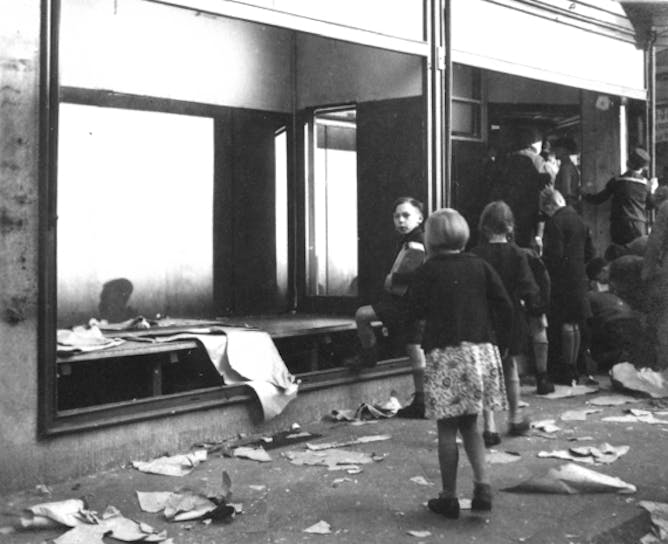
A looted Jewish shop in Aachen, Germany on the day after Kristallnacht, Nov. 10, 1938.
Wolf Gruner and Armin Nolzen (eds.). 'Bürokratien: Initiative und Effizienz,' Berlin, 2001.
Wolf Gruner, University of Southern California – Dornsife College of Letters, Arts and Sciences
Most histories highlight the shattered storefronts and synagogues set aflame. But it was the systematic ransacking of Jewish homes that extracted the greatest toll.
|

Sen. Susan Collins is among the senators who have chosen to stay quiet about impeachment so far.
AP Photo/J. Scott Applewhite
Lynne H. Rambo, Texas A&M University
No written law or rule requires the senators to remain silent on the issues. But it's probably a good idea, and a promising sign of fairness.
|

Working in college helps pay the bills, but working too many hours can bring some ill effects, research shows.
GaudiLab
Laura Perna, University of Pennsylvania; Taylor K. Odle
Working in college may help students pay the bills, but putting in long hours can come at a cost, research shows. A scholar discusses what college students should consider before taking a job.
|
|
-
John Broich, Case Western Reserve University
Despite many attempts, the Kurds have never won and kept their own nation -- though, after World War I, they came close.
-
Daniel Apai, University of Arizona; Benjamin Rackham, Massachusetts Institute of Technology
Beyond the outer edge of the Solar System, mysterious, unknown worlds await by the thousands. Astronomers can now finally find them and explore them - but will we find another Earth?
-
Amy Erica Smith, Iowa State University
Brazilian evangelicals are politically conservative, but they still believe in climate change. Turning them into climate activists, however, will be a challenge for the environmentalist movement.
|
|